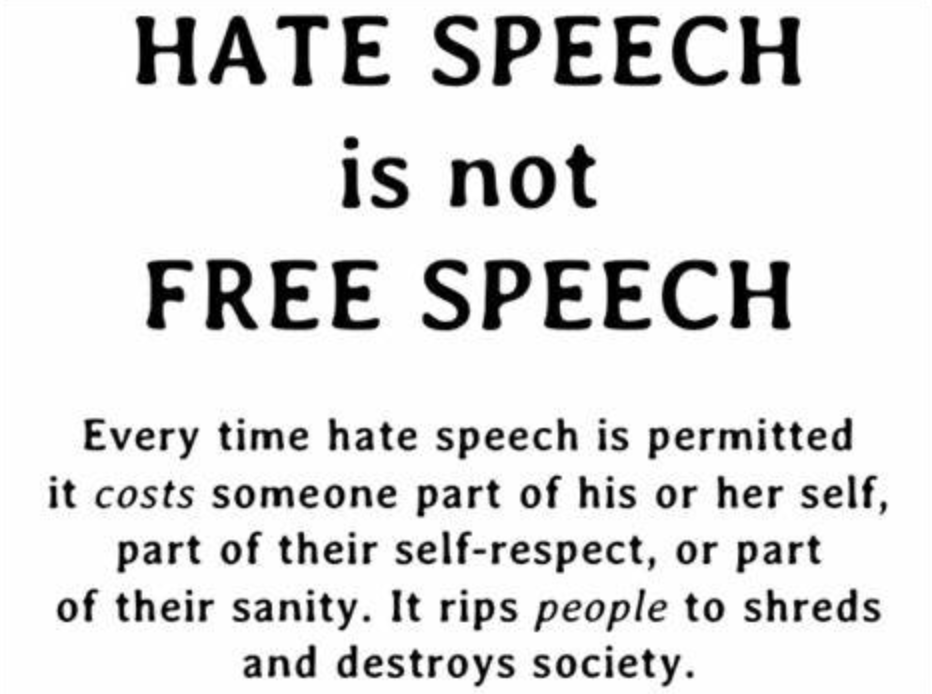I don’t know if this is extreme audacity or an absolute lack of self-awareness, but Reuters is denouncing Venezuelan hate speech laws as a violation of freedom of expression and claiming they are used by the ruling establishment to silence critics.
Frankly, I can’t even believe what I’m reading here.
In a review of more than 40 recent hate-law arrests, Reuters found that in each case, authorities intervened against Venezuelans who had criticized Maduro, other ruling party officials or their allies.
Despite its growing use by prosecutors, the hate law is considered unconstitutional and illegitimate by many Venezuelan legal scholars consulted by Reuters. Not only does the law violate the right to free expression, they argue, it was also illegally enacted – drafted and rubber-stamped by a parallel legislature that Maduro created at the time to circumvent the opposition-controlled assembly.
The law played an important role in a nationwide election this month, Maduro’s opponents say, by cowing critics who had spoken out about the government in the runup to the vote. The election, widely considered a sham by the opposition, human rights groups and most Western democracies, finally gave control of the assembly, the last part of the national government not aligned with Maduro, to his allies.
…
Now, with little effective opposition to challenge the hate legislation, and most of the courts controlled by judges also loyal to Maduro, the law could be an even more formidable tool against dissent. “A law like this, in the hands of a judicial power without independence, lends itself to all sorts of persecution,” said Alberto Arteaga, a criminal law specialist at the Central University of Venezuela. “The criminal justice system is being used as a weapon.”
…
The effort is quashing discussion online and in messaging platforms that until recently were safe venues for Maduro critics.
…
“It has generated self-censorship,” said Marianela Balbi, director of Instituto Prensa y Sociedad, a press and free-speech advocacy group in Caracas, Venezuela’s capital. “The intention is clear: Don’t challenge public officials.”
So these are virtually the exact dynamics of the “hate speech” laws in the West, which are universally used to silence critics of the regime.
What’s more, although we do not technically have hate speech laws in the US, the censorship that takes place is akin to a punishment by the state, and it is often worse than what hate criminals face in Europe. In the United States, speech is not protected, meaning that if you say something politically incorrect on the internet, Jewish organizations can call your employer and threaten to publicly accuse them of racism if they don’t fire you.
The ruling elite is largely Jewish in most Western countries, and it is also filled with homosexuals and colored people. What’s more, the opposition to these regimes tends to be right-wing, so they are more inclined to committing “hate speech” against Jews, nonwhites or homosexuals.
This is obviously designed to prevent criticism of the establishment, as well as to discourage open discussion of the way our governments behave.
It is just shocking that Reuters, a company that has played such a large role in enforcing speech regulations in the West, is able to go to Latin America and report on exactly what they are doing as if it is bad.
This is the message they promote in the West:
I would probably agree that the Venezuelan hate speech laws are bad and unfair and so on. The issue is: I don’t care. That has nothing at all to do with me.
But if the media is able to denounce these laws in a foreign country, then it is time that we had a discussion as to why we allow these laws (and lack of laws providing protections, in the case of the US) to silence political dissent and chill freedom of speech in our own countries.
 Daily Stormer The Most Censored Publication in History
Daily Stormer The Most Censored Publication in History




